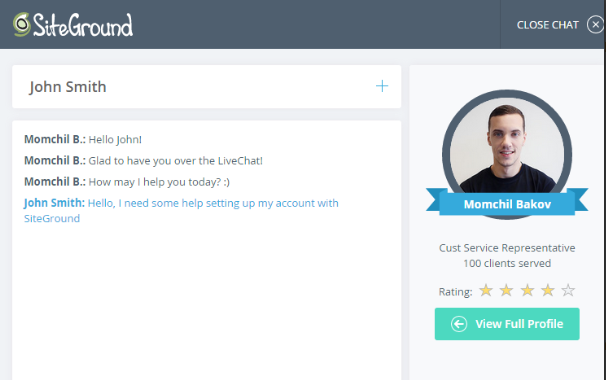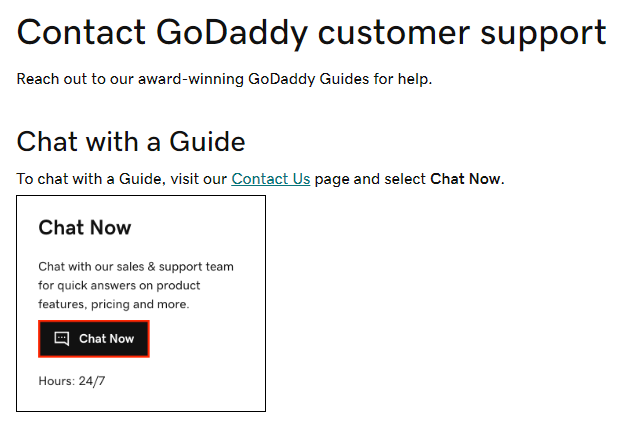Introduction
When it comes to choosing the best web hosting provider, the comparison of SiteGround vs GoDaddy frequently comes to the forefront. Both companies offer a variety of hosting solutions, yet they cater to different needs and preferences. In this detailed guide, we’ll dissect the key differences and similarities between SiteGround and GoDaddy to help you determine which is the right choice for your website. Whether your priorities lie in performance, customer support, or cost, this comparison will provide you with the insights necessary to make an informed decision.

Table of Contents
Overview of SiteGround and GoDaddy
SiteGround
When exploring SiteGround vs GoDaddy, SiteGround, established in 2004, has built a reputation for offering reliable and high-performance web hosting services. Known for its excellent customer support and robust security features, SiteGround has become a favorite among small to medium-sized businesses and WordPress users. Their emphasis on performance and support sets them apart in the SiteGround vs GoDaddy debate.

GoDaddy
In the SiteGround vs GoDaddy comparison, GoDaddy, founded in 1997, stands out as one of the largest and most well-known web hosting companies globally. It provides a wide range of services, from domain registration to web hosting and website building tools. GoDaddy’s extensive portfolio and aggressive marketing make it a prominent player in the SiteGround vs GoDaddy industry comparison.

Performance and Reliability
SiteGround Performance
When assessing SiteGround vs GoDaddy in terms of performance, SiteGround excels due to its use of advanced technologies. They offer:
- Solid-State Drives (SSDs): Faster data access and improved load times.
- Cloudflare CDN Integration: Enhances website speed and security.
- Custom Caching Solutions: Includes SuperCacher for improved performance.
SiteGround’s servers are optimized for speed and reliability, which is crucial in the SiteGround vs GoDaddy performance discussion. Their data centers are strategically located around the globe to ensure low latency and quick load times for users everywhere.
GoDaddy Performance
In the SiteGround vs GoDaddy performance analysis, GoDaddy also provides solid performance but with some differences:
- Shared Hosting Performance: Shared hosting plans can sometimes lead to slower load times due to resource sharing.
- CDN Integration: GoDaddy offers a CDN as an add-on, which can improve performance but may incur additional costs.
- Website Builder Integration: Their website builder is optimized for performance but can be limiting in terms of customization.
While GoDaddy’s performance is generally good, especially with their higher-tier plans, users often report varying experiences depending on the plan and the resources allocated in the SiteGround vs GoDaddy comparison.
Pricing and Plans
SiteGround Pricing
When comparing SiteGround vs GoDaddy for pricing, SiteGround offers three main hosting plans:
- StartUp: Suitable for small websites, includes 10 GB of web space and supports one website.
- GrowBig: Includes 20 GB of web space and supports unlimited websites. It also offers enhanced performance with the SuperCacher tool.
- GoGeek: Provides 40 GB of web space, advanced features like one-click staging, and priority support.
SiteGround’s pricing is competitive, especially considering their high performance and customer support. They often run promotions, so checking for discounts is advisable in the SiteGround vs GoDaddy pricing discussion.

GoDaddy Pricing
In the SiteGround vs GoDaddy pricing comparison, GoDaddy’s pricing structure is more diverse:
Web Hosting Economy: At $6.99 per month, this plan is ideal for small websites. It includes 100 GB of storage and provides a free business email for the first year. It’s a great entry-level option for those just starting out or managing a personal blog.
Web Hosting Deluxe: Priced at $9.99 per month, the Deluxe plan offers unlimited storage and the ability to host an unlimited number of websites. This plan is suitable for growing websites that require more flexibility and capacity.
Web Hosting Ultimate: For $14.99 per month, the Ultimate plan provides additional features such as increased processing power and enhanced security. It’s designed for users who need more robust performance and protection for their sites.
Web Hosting Maximum: At $21.99 per month, the Maximum plan is tailored for larger websites with extensive needs. It offers the highest level of resources and support, making it suitable for high-traffic sites or those requiring advanced functionalities.

Customer Support
SiteGround Support
In the SiteGround vs GoDaddy support comparison, SiteGround is renowned for its excellent customer support. Their support team is available 24/7 via:
- Live Chat: Quick responses and effective problem-solving.

- Phone Support: Available for direct assistance.
- Ticketing System: For less urgent issues and follow-ups.
SiteGround’s support staff is knowledgeable and trained to handle a wide range of technical issues, making them a reliable choice for those who prioritize customer service in the SiteGround vs GoDaddy debate.
GoDaddy Support
In the SiteGround vs GoDaddy support review, GoDaddy also provides 24/7 customer support through:
- Phone Support: Accessible globally with dedicated support for various issues.
- Live Chat: Available during business hours.

- Help Center: Comprehensive articles and tutorials for self-help.
While GoDaddy’s support is generally good, users have reported longer wait times and less personalized assistance compared to SiteGround in the SiteGround vs GoDaddy support comparison.
Features and Tools
SiteGround Features
When evaluating SiteGround vs GoDaddy for features, SiteGround offers:
- Free Daily Backup: Automatic backups to keep your data safe.
- Free SSL Certificates: Enhances website security and boosts SEO.
- Staging Environment: Test changes before going live with the GoGeek plan.
- Developer Tools: Advanced features for experienced users, including Git integration and WP-CLI.
SiteGround’s features are designed to cater to both beginners and advanced users, with a focus on security, performance, and ease of use in the SiteGround vs GoDaddy features review.
GoDaddy Features
In the SiteGround vs GoDaddy features comparison, GoDaddy offers:
- Website Builder: An intuitive drag-and-drop builder for creating websites without coding.
- Office 365 Integration: Professional email services included with some plans.
- Marketing Tools: SEO, social media, and email marketing tools integrated into their plans.
- E-Commerce Features: Includes a variety of tools for setting up online stores.
GoDaddy’s feature set is diverse and geared towards users looking for a one-stop-shop for various online services, from hosting to website creation in the SiteGround vs GoDaddy features analysis.
Pros and Cons
SiteGround Pros and Cons
In the SiteGround vs GoDaddy comparison, consider SiteGround’s pros and cons:
Pros:
- Excellent performance and uptime.
- Superior customer support.
- Advanced security features.
- Regular backups and free SSL certificates.
Cons:
- Higher renewal rates compared to some competitors.
- Limited storage on the lower-tier plans.
GoDaddy Pros and Cons
When analyzing SiteGround vs GoDaddy, here are GoDaddy’s pros and cons:
Pros:
- Wide range of services and tools.
- Competitive introductory pricing.
- Large-scale infrastructure with reliable performance.
- Comprehensive domain management services.
Cons:
- Higher renewal rates for hosting plans.
- Mixed customer support experiences.
- Upselling of additional features and services.
Conclusion
Choosing between SiteGround and GoDaddy hinges on your specific needs and priorities. SiteGround is ideal for those seeking high performance, exceptional customer support, and robust security features, making it a great choice for WordPress users and performance-focused sites. GoDaddy, with its wide array of services and competitive introductory pricing, is perfect for users who want an all-in-one solution that includes domain registration, website building tools, and marketing features.

Evaluate your website’s requirements, consider your budget, and take advantage of trial periods or money-back guarantees to make an informed decision. Both providers offer strong options, so select the one that aligns best with your goals and preferences.





